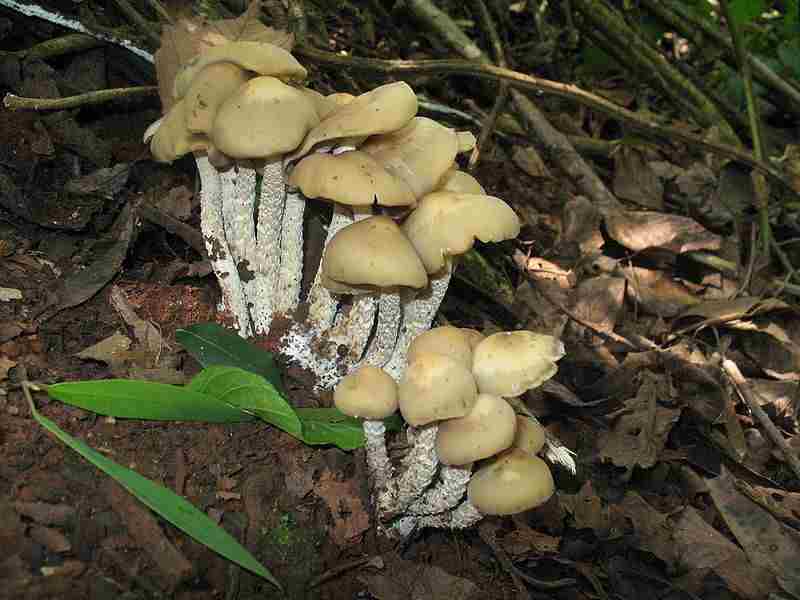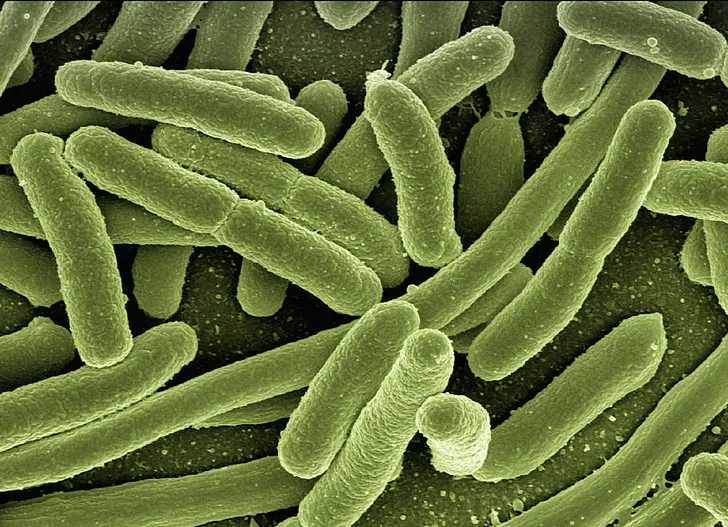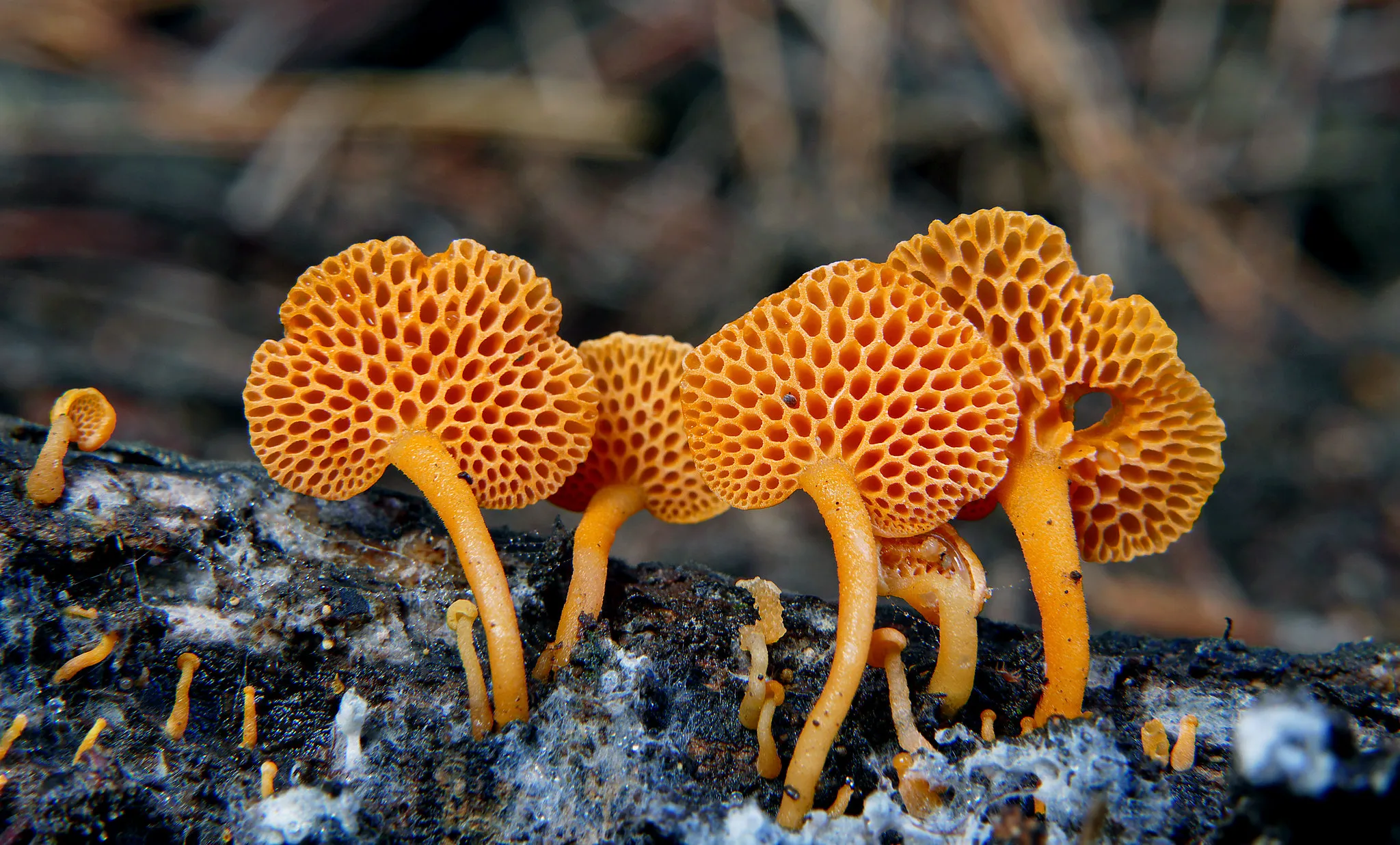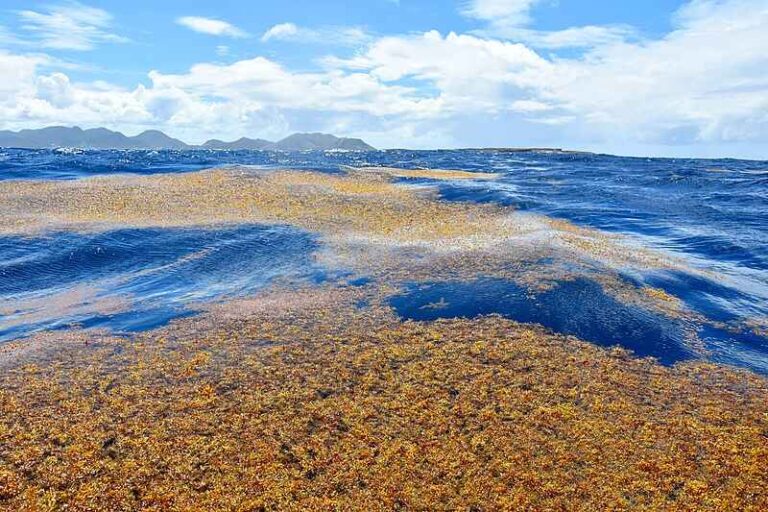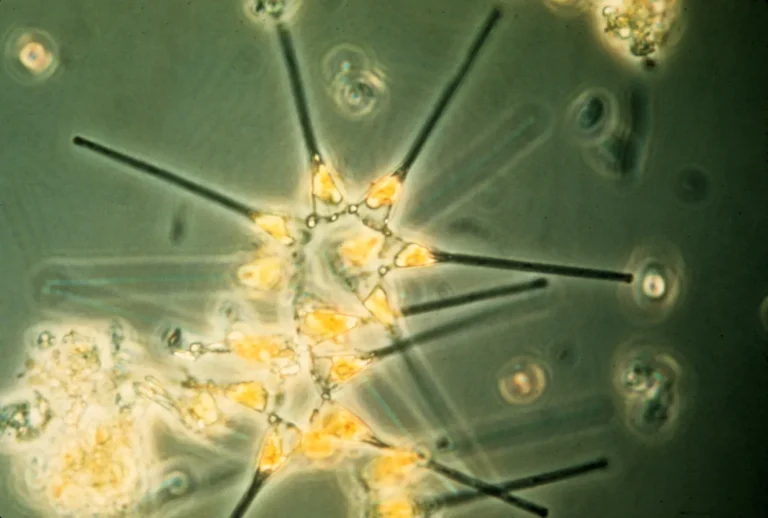What is the Role of Decomposers in the Ecosystem? Overview of Decomposer Functions
The role of decomposers in the ecosystem includes; facilitation of energy flow, support of nutrient cycling, supply of nutrients to autotrophs, prevention of organic matter accumulation, and influence on carbon cycling dynamics. They are all discussed in this article.
1. Facilitate the Flow of Energy
Decomposers are instrumental in facilitating the flow of energy in the ecosystem. They do this by breaking down dead organic matter, such as dead plants and animals, into simpler compounds.
This process, known as biodegradation, releases energy that was stored in the organic matter back into the ecosystem. The decomposers, such as bacteria and fungi, feed on the organic matter and break it down through chemical reactions, releasing energy in the form of heat. This energy is then available for other organisms in the ecosystem to use.
The flow of energy in an ecosystem is essential for the sustenance and survival of all organisms. When plants and animals die, their energy-rich bodies become a valuable resource for decomposers.
These decomposers break down the complex organic compounds present in dead organisms into simpler forms, releasing energy in the process. This energy is then transferred to other organisms through the food chain.
The energy released by decomposers not only benefits other organisms directly but also indirectly supports the entire ecosystem. For example, when decomposers break down dead plant material, the energy released can be utilized by herbivores that feed on the plants. In turn, these herbivores become a food source for predators, transferring the energy further up the food chain.
Without decomposers, the energy stored in dead organic matter would remain locked away and unavailable for other organisms to use. This would lead to a buildup of dead material and a decrease in the overall energy flow within the ecosystem.
Decomposers ensure that the energy from dead organisms is not wasted and is instead recycled back into the ecosystem, promoting a sustainable flow of energy.
Furthermore, decomposers play a crucial role in maintaining the balance of energy flow within the ecosystem. They regulate the rate at which organic matter is broken down, ensuring that the energy release is gradual and sustainable. This prevents sudden surges or shortages of energy, which could disrupt the stability of the ecosystem.
Generally, decomposers facilitate the flow of energy in the ecosystem by breaking down dead organic matter and releasing the stored energy. This energy is then transferred through the food chain, supporting the survival and sustenance of various species. By playing this vital role, decomposers contribute to the overall functioning and balance of the ecosystem.
Their ability to efficiently break down organic matter and release energy ensures a continuous flow of energy, benefiting all organisms within the ecosystem.
2. Support Nutrient Cycling
Decomposers are involved in supporting nutrient cycling in the ecosystem.
By breaking down dead organic matter, they release essential nutrients back into the environment. Through the process of decomposition, decomposers like bacteria and fungi break down complex organic compounds into simpler forms, such as nitrogen, phosphorus, and carbon. These nutrients are then made available to autotrophs, such as plants, which can absorb and utilize them for growth and development.
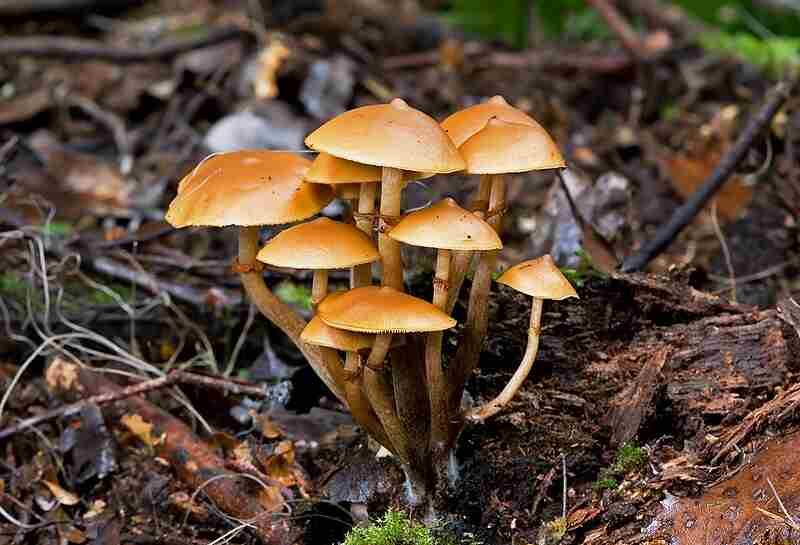
Nutrient cycling is a vital process in the ecosystem as it ensures the continuous availability of essential elements for all organisms. Without decomposers, the nutrients locked within dead organic matter would remain inaccessible, leading to a depletion of resources and a decline in the overall health and productivity of the ecosystem.
When plants and animals die, their bodies contain valuable nutrients that can be recycled back into the ecosystem. Decomposers break down the complex organic compounds present in dead organisms, releasing the nutrients they contain. This process not only benefits the decomposers themselves but also supports the growth and survival of autotrophs.
Autotrophs, such as plants, rely on these nutrients for their metabolic processes and growth. However, autotrophs cannot directly obtain nutrients from the atmosphere or inorganic sources. Instead, they depend on decomposers to convert organic matter into forms they can absorb. By facilitating this nutrient availability, decomposers ensure that autotrophs have a continuous supply of essential elements.
The recycling of nutrients by decomposers is a vital component of the ecosystem’s nutrient cycle. As autotrophs absorb the nutrients released by decomposers, they incorporate them into their tissues. When these autotrophs are consumed by herbivores, the nutrients are transferred up the food chain. This process continues as the nutrients are passed on to higher trophic levels, ultimately returning to the decomposers when organisms die and their bodies are broken down.
In addition to supporting the growth of autotrophs, decomposers also contribute to the overall health and productivity of the ecosystem. By breaking down dead organic matter, they prevent the accumulation of organic material, which could otherwise lead to the buildup of waste and the release of harmful substances. Decomposers ensure that the ecosystem remains clean and free from excessive organic debris.
Furthermore, the role of decomposers in nutrient cycling extends beyond individual organisms. They contribute to the balance and stability of the ecosystem by regulating the availability of nutrients. Decomposers control the rate at which organic matter is broken down, ensuring a gradual release of nutrients. This prevents sudden surges or shortages of nutrients, which could disrupt the delicate balance of the ecosystem.
3. Make Nutrients Available to Autotrophs
Decomposers, such as bacteria and fungi, are essential for making nutrients available to autotrophs in the ecosystem.
Autotrophs, such as plants, rely on these nutrients for their growth and development. Without decomposers, the nutrients locked within dead organic matter would remain inaccessible, leading to a depletion of resources and a decline in the overall health and productivity of the ecosystem.
When plants and animals die, their bodies contain valuable nutrients that can be recycled back into the ecosystem. Decomposers, such as bacteria and fungi, break down the complex organic compounds present in dead organisms, releasing the nutrients they contain. This process not only benefits the decomposers themselves but also supports the growth and survival of autotrophs.
Autotrophs cannot directly obtain nutrients from the atmosphere or inorganic sources. Instead, they depend on decomposers to convert organic matter into forms they can absorb. By facilitating this nutrient availability, decomposers ensure that autotrophs have a continuous supply of essential elements.
The recycling of nutrients by decomposers is a vital component of the ecosystem’s nutrient cycle. As autotrophs absorb the nutrients released by decomposers, they incorporate them into their tissues.
When these autotrophs are consumed by herbivores, the nutrients are transferred up the food chain. This process continues as the nutrients are passed on to higher trophic levels, ultimately returning to the decomposers when organisms die and their bodies are broken down.
In addition to supporting the growth of autotrophs, decomposers also contribute to the overall health and productivity of the ecosystem. By breaking down dead organic matter, they prevent the accumulation of organic material, which could otherwise lead to the buildup of waste and the release of harmful substances. Decomposers ensure that the ecosystem remains clean and free from excessive organic debris.
Also, the role of decomposers in nutrient cycling extends beyond individual organisms. They contribute to the balance and stability of the ecosystem by regulating the availability of nutrients. Decomposers control the rate at which organic matter is broken down, ensuring a gradual release of nutrients. This prevents sudden surges or shortages of nutrients, which could disrupt the delicate balance of the ecosystem.
4. Prevent Accumulation of Organic Matter
Decomposers help in preventing the accumulation of organic waste matter in the ecosystem.
By breaking down dead organic material, such as fallen leaves, dead plants, and animal remains, decomposers ensure that these materials do not build up and become a burden on the ecosystem.
This biochemical process releases essential nutrients back into the environment, making them available for other organisms to use. Without decomposers, organic waste matter would accumulate, leading to nutrient imbalances and potential disruptions in the ecosystem. Therefore, decomposers are vital in maintaining the balance and health of the ecosystem.
When plants and animals die, their bodies contain valuable nutrients that can be recycled back into the ecosystem. If not for decomposers, these nutrients would remain locked within dead organic matter, inaccessible to other organisms. As a result, the ecosystem would experience a depletion of resources and a decline in overall health and productivity.
Decomposers, such as bacteria and fungi, break down the complex organic compounds present in dead organisms. Through their enzymatic activities, they release the nutrients contained within these compounds, making them available for other organisms to utilize.
This nutrient recycling process is essential for the growth and survival of autotrophs, such as plants, which rely on these nutrients for their development.
In addition to nutrient recycling, decomposers also prevent the accumulation of organic waste matter. If dead organic material were to accumulate without decomposition, it would lead to the buildup of waste and the release of harmful substances. Decomposers ensure that the ecosystem remains clean and free from excessive organic debris.
The role of decomposers in preventing the accumulation of organic matter extends beyond individual organisms. They contribute to the balance and stability of the ecosystem by regulating the availability of nutrients. Decomposers control the rate at which organic matter is broken down, ensuring a gradual release of nutrients. This prevents sudden surges or shortages of nutrients, which could disrupt the delicate balance of the ecosystem.
In addition, the decomposition process carried out by decomposers helps to maintain the overall health of the ecosystem. By breaking down dead organic matter, they prevent the buildup of potential disease-causing organisms and pathogens. This reduces the risk of outbreaks and maintains the overall well-being of the ecosystem.
5. Influence Carbon Cycling Dynamics
In addition to their other roles, decomposers play a crucial role in influencing carbon cycling dynamics in the ecosystem.
When organic matter, such as dead plants and animals, is broken down by decomposers, carbon is released back into the environment. This carbon can then be utilized by autotrophs, such as plants, through the process of photosynthesis.
By facilitating the breakdown of organic materials, decomposers contribute to the cycling of carbon in the ecosystem. They help to maintain a balance between carbon dioxide in the atmosphere and carbon stored in living organisms and organic matter. This balance is essential for the overall health and stability of the ecosystem.
One way decomposers influence carbon cycling dynamics is through the release of carbon dioxide during the decomposition process. When decomposers break down organic matter, they release carbon dioxide as a byproduct.
This carbon dioxide can then be absorbed by autotrophs during photosynthesis, allowing them to convert it into carbohydrates and other organic compounds. In this way, decomposers contribute to the transfer of carbon from dead organic matter to living organisms, ensuring the continuous flow of carbon through the ecosystem.
Furthermore, decomposers also contribute to the sequestration of carbon in the soil. As they break down organic matter, they release carbon compounds that can be absorbed by the soil. This process effectively stores carbon in the soil, reducing its presence in the atmosphere.
This is important for mitigating the impacts of climate change, as carbon dioxide is a greenhouse gas that contributes to global warming. By sequestering carbon in the soil, decomposers help to reduce greenhouse gas emissions and regulate the Earth’s climate.
The role of decomposers in influencing carbon cycling dynamics extends beyond their immediate impact on the ecosystem. Carbon cycling is interconnected with other biogeochemical cycles, such as the nitrogen and phosphorus cycles. Decomposers play a vital role in maintaining the balance between these cycles, ensuring that the availability of carbon, nitrogen, and phosphorus remains in equilibrium. This balance is essential for the growth and development of all organisms in the ecosystem.
Therefore, decomposers have a significant influence on carbon cycling dynamics in the ecosystem. Through their role in breaking down organic matter and releasing carbon back into the environment, they contribute to the cycling of carbon and the maintenance of a balance between carbon dioxide in the atmosphere and carbon stored in living organisms and organic matter.
Additionally, decomposers help to sequester carbon in the soil, reducing greenhouse gas emissions and mitigating the impacts of climate change. Their contribution to carbon cycling dynamics is essential for the overall health and stability of the ecosystem.
FAQs
1. What are the Main Decomposers in Ecosystems and How Do They Help the Ecosystem?
The main decomposers in ecosystems are bacteria and fungi. These microorganisms play a crucial role in breaking down dead organic matter, such as fallen leaves, dead animals, and plant debris. By decomposing these materials, they facilitate the flow of energy within the ecosystem.
Bacteria and fungi also support nutrient cycling by releasing essential nutrients back into the soil. They break down complex organic compounds into simpler forms that can be absorbed by plants and other organisms. This process is vital for maintaining nutrient availability in the ecosystem.
Furthermore, decomposers make nutrients available to autotrophs, which are organisms that can produce their own food through photosynthesis. By breaking down organic matter, decomposers release nutrients that autotrophs need for growth and reproduction.
In addition, decomposers prevent the accumulation of organic matter in the ecosystem. If dead organic matter were not decomposed, it would pile up and hinder the growth of new organisms.
2. Write the Importance of Decomposers?
Decomposers play a crucial role in ecosystems, and their importance cannot be overstated. They are essential for maintaining the balance and functioning of the ecosystem.
One key importance of decomposers is their role in nutrient cycling. When decomposers break down dead organic matter, they release essential nutrients back into the soil. These nutrients are then made available to plants and other organisms, ensuring the continuous availability of nutrients in the ecosystem. This process is vital for the growth and survival of all living organisms.
Another importance of decomposers is their contribution to the flow of energy within the ecosystem. By decomposing dead organic matter, they release energy that is stored within these materials. This energy is then transferred to other organisms in the food chain, allowing for the sustenance and survival of higher trophic levels.
Decomposers also help prevent the accumulation of organic matter in the ecosystem.
If dead organic matter were not decomposed, it would pile up and hinder the growth of new organisms. Decomposers break down this organic matter, recycling it back into the ecosystem and making space for new life to thrive.
Decomposers are of utmost importance in ecosystems. They facilitate nutrient cycling, support the flow of energy, and prevent the accumulation of organic matter. Without decomposers, the ecosystem would not be able to function effectively, and the balance of nature would be disrupted.
3. What do Decomposers Eat?
Decomposers have a diverse diet, consisting mainly of dead plants and animals. They feed on decaying matter such as fallen leaves, dead animals, and even feces. This process of consuming organic material helps decomposers obtain energy and nutrients for their own survival.
One of the primary food sources for decomposers is cellulose, a complex carbohydrate found in plant cell walls. Decomposers, such as fungi and bacteria, possess enzymes that can break down cellulose into simpler compounds that they can digest. Additionally, decomposers also consume proteins, lipids, and other organic compounds present in dead organisms.
By consuming organic waste materials, decomposers not only obtain nutrients for themselves but also contribute to nutrient cycling. They break down complex organic compounds into simpler forms, releasing essential nutrients back into the environment. These nutrients are then recycled and made available to other organisms, ensuring the continuous flow of energy and nutrients within the ecosystem.
4. Give any Two Ways in Which Biodegradable Substances Would Affect the Environment?
Biodegradable substances can have both positive and negative effects on the environment.
Two ways in which biodegradable substances can affect the environment ate; through the release of greenhouse gases, and the contamination of media like air, soil and water respectively.
When biodegradable materials, such as food waste or plant matter, decompose, they release carbon dioxide and other greenhouse gases into the atmosphere. This can contribute to climate change and global warming.
Another way in which biodegradable substances can impact the environment is through their potential to contaminate water sources. For example, if biodegradable substances, such as certain types of pesticides or fertilizers, are not properly managed, they can leach into groundwater or nearby bodies of water. This can lead to water pollution, which can harm aquatic ecosystems and the organisms that rely on them.
Additionally, the improper disposal of biodegradable substances can attract pests and vermin, creating health and sanitation issues. For example, if food waste is not properly managed, it can attract rodents and insects, increasing the risk of disease transmission.
To mitigate the negative effects of biodegradable substances on the environment, proper waste management practices should be implemented. This includes recycling, composting, and using environmentally-friendly alternatives to non-biodegradable materials. By doing so, we can reduce greenhouse gas emissions, prevent water pollution, and promote a healthier and more sustainable environment.
5. Is Bacteria a Decomposer?
Bacteria are responsible for breaking down organic matter, such as dead plants and animals, into simpler compounds. This breakdown releases nutrients back into the environment, making them available for other organisms to use.
One of the key ways bacteria contribute to decomposition is through the production of enzymes. These enzymes help break down complex organic molecules, such as proteins and carbohydrates, into smaller, more manageable components. Bacteria then absorb these components and use them as a source of energy and nutrients.
In addition to breaking down organic matter, bacteria also help in the recycling of nutrients. They convert organic compounds into inorganic forms, such as nitrogen and phosphorus, which can be taken up by plants and other autotrophs. This nutrient cycling is essential for the overall health and productivity of the ecosystem.
Furthermore, bacteria are involved in the decomposition of various biodegradable substances, including waste materials and pollutants. Their ability to break down these substances helps prevent the accumulation of organic matter and reduces the environmental impact of these materials.
